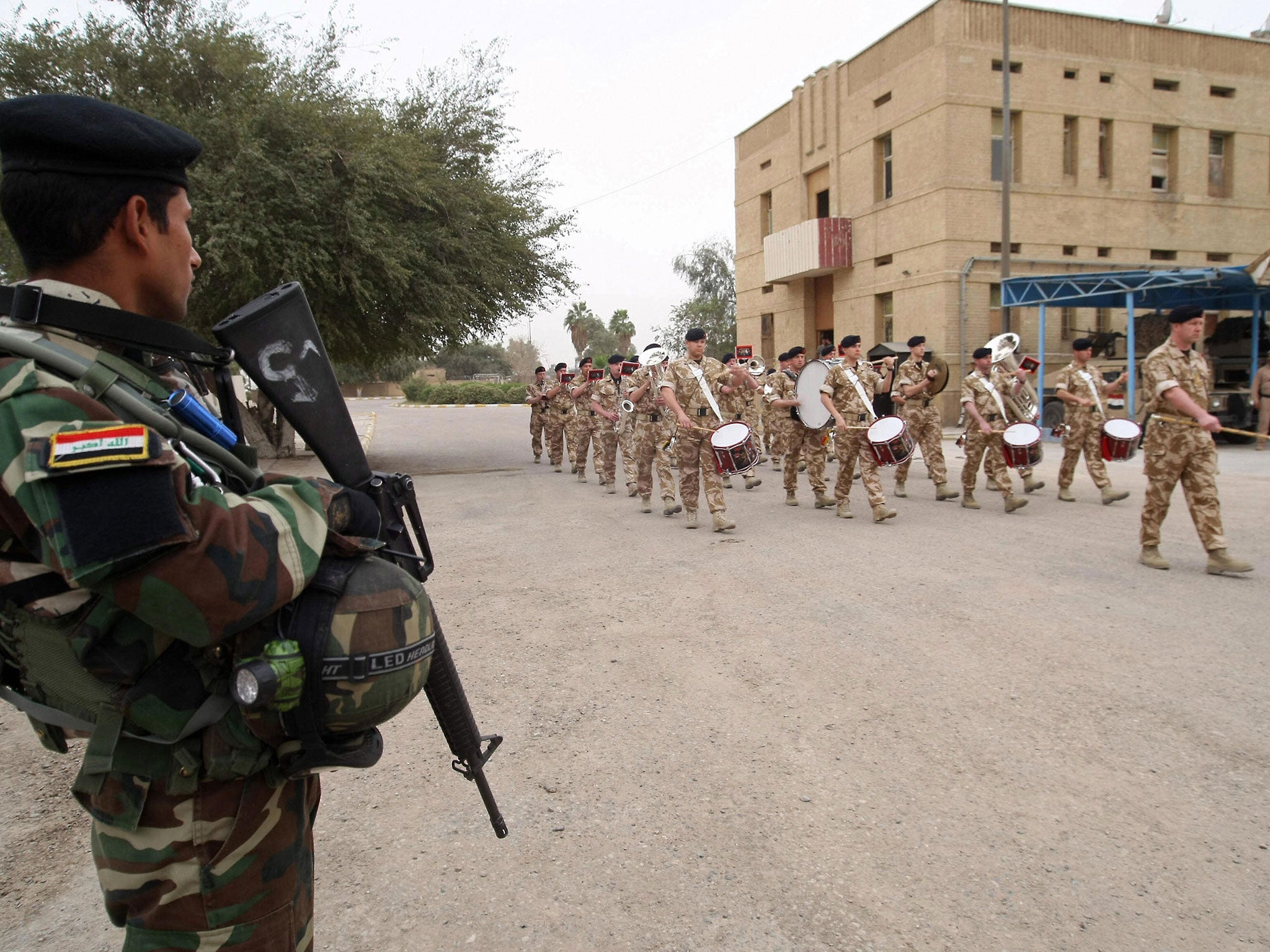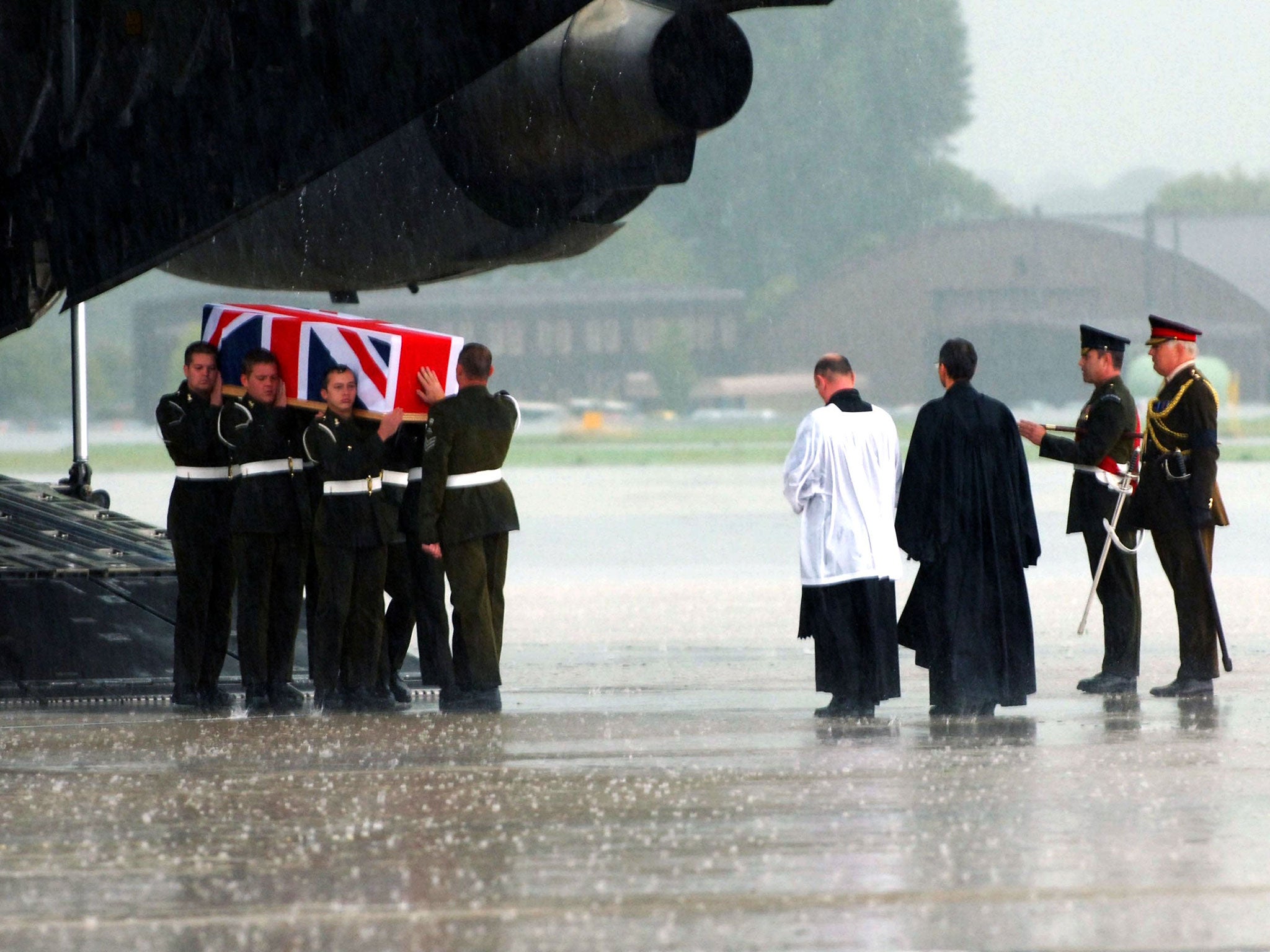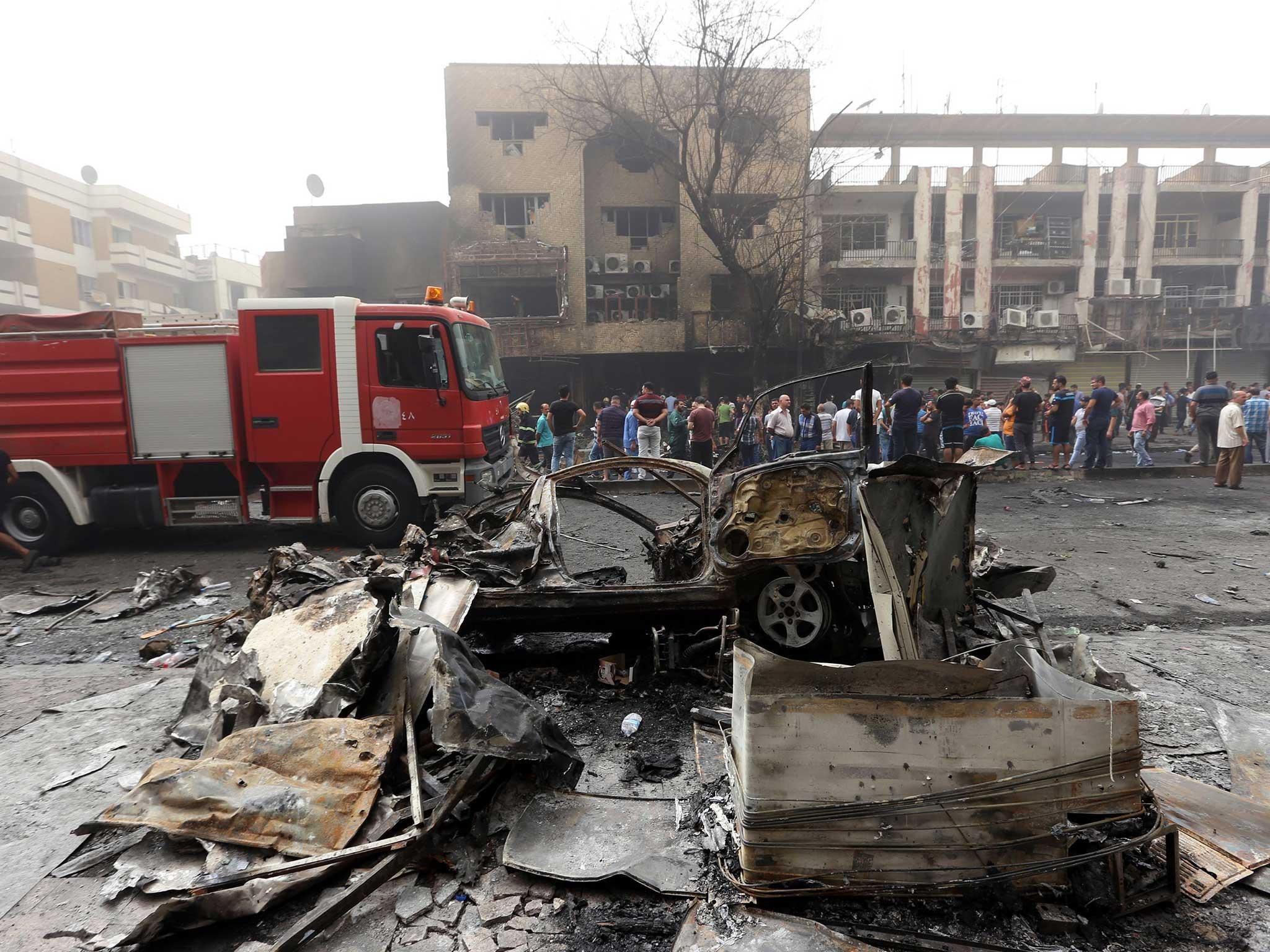Chilcot report: Tony Blair, the Iraq War, and the words of mass destruction that continue to deceive
The publication of the Chilcot report promises to provide a damning indictment of our government, but, asks Patrick Cockburn, have the lessons of this sorry saga been learnt?

Your support helps us to tell the story
From reproductive rights to climate change to Big Tech, The Independent is on the ground when the story is developing. Whether it's investigating the financials of Elon Musk's pro-Trump PAC or producing our latest documentary, 'The A Word', which shines a light on the American women fighting for reproductive rights, we know how important it is to parse out the facts from the messaging.
At such a critical moment in US history, we need reporters on the ground. Your donation allows us to keep sending journalists to speak to both sides of the story.
The Independent is trusted by Americans across the entire political spectrum. And unlike many other quality news outlets, we choose not to lock Americans out of our reporting and analysis with paywalls. We believe quality journalism should be available to everyone, paid for by those who can afford it.
Your support makes all the difference.By an accident of history, the Chilcot inquiry on the Iraq War is appearing at a critical moment in British history. The war was the first great test this century of the ability of the British powers-that-be to govern intelligently and successfully and one which they demonstrably failed. The crisis provoked by the vote to leave the European Union is the next crisis of similar gravity faced by these same powers and, once again, they appear unable to cope.
Follow our latest updates on the Chilcot report
Britain’s politicians and senior officials have traditionally had the reputation of making fewer mistakes than their rivals, but their inability to grapple with these crises is a sign that this period may be drawing to an end. The Chilcot report will presumably provide evidence about why Britain made so many mistakes before and during the Iraq war, but is unlikely to explain why it went on making them in Libya and Syria.
Britain’s rulers periodically admit that they got many things wrong in Iraq, but they tend to be unspecific about what these were or what practical lessons can be learned from British military involvement there between 2003 and 2009. This ignorance is wilful, stemming from a conscious or unconscious sense that, if Britain admits to real weaknesses and failures, it will be seen as a less valuable ally by the US and others whom Britain is trying to convince of its continuing political and military strength.
One way of looking at the Iraq conflict is to see it as a disastrous attempt by Britain to make war on the cheap in conditions which were far more risky than those launching it imagined. To prevent fragile support for the war eroding further, bad news was concealed or glossed over to the point that propaganda took over from reality
It was comical but chilling in the early years of the war to see Tony Blair and other British ministers, sometimes protected by helmets and body armour, travelling by helicopter from Baghdad International Airport to the Green Zone because it was too dangerous for them to drive along the short stretch of road between the two. Despite the necessity for these security measures in the heart of the Iraqi capital, they would then blithely state that the insurgents were on the run and a majority of Iraqi provinces at peace, a claim they wisely made no attempt to validate by a personal visit and in the knowledge that journalists could not disprove without grave risk of being murdered.
Within a year of the invasion, the US and Britain controlled only beleaguered islands of territory which were under constant attack. The British Army, its forces far too small for the task they had been given, failed to control Basra in southern Iraq and by the end was humiliatingly confined to a camp on its outskirts. Many of the British soldiers there were transferred to an equally messy, unwinnable and ill-understood conflict in Helmand province in Afghanistan in 2006 with predictably grim and bloody consequences.

These failures should have given pause to anybody in authority in Britain plunging into foreign ventures which destabilised established states with no idea of what would replace them. Nevertheless, in 2011 David Cameron and Nicolas Sarkozy did not hesitate to lead the charge in overthrowing Muammar Gaddafi in a war which turned Libya into a battleground for rival warlords and opened the door for a flood of desperate migrants trying to cross the Mediterranean from Libya to Italy.
In Syria, British policy was for long predicated on the expectation that Bashar al-Assad was about to fall, though it should have been self-evident that this was not going to happen since he held most of the populated areas of the country and was backed by Russia and Iran. In 2012, just as Isis was establishing Al Nusra as its Syrian branch, senior British diplomats were saying in private that they believed that fears of the Syrian conflict spreading were much exaggerated.
The following year David Cameron favoured Britain undertaking airstrikes against Syrian government forces, though this would have either been ineffective or, if President Bashar al-Assad had fallen, would have led to him being replaced by extreme Islamists since they dominated the armed opposition.
The change in policy was fortunately turned down by the House of Commons which had taken on board the dangers involved in such ventures. But the government still seemed to be plugged into a fantasy picture of the Syrian war when last December it began airstrikes against the Islamic State in Syria, though once again the forces involved were so limited as to make it little more than a symbolic gesture. In order to avoid having to choose between Assad and IS, Mr Cameron claimed that we are acting in support of 70,000 moderate Syrian fighters prepared to take on both Syrian government forces and Islamic fundamentalists, but whose location cannot be disclosed and whose very existence is in doubt.
The Iraq war was militarily small compared to others fought by Britain over the last century. British forces lost just 179 dead in action in Iraq between 2003 and 2009 compared to 455 fatalities in Afghanistan between 2001 and 2015, both figures being entirely dwarfed by the horrendous figure of 40,000 dead for British and Indian soldiers killed fighting in what later became Iraq between 1914 and 1918.

But the political impact of the Iraq war in Britain and the US was serious, long-lasting and far outweighed its significance as an armed conflict. It permanently blasted the reputation of Tony Blair, though he won one more general election in 2006, and Barack Obama’s vote in the Senate against the war was a decisive advantage for him in competing with Hillary Clinton in the race to be Democratic presidential candidate in 2008.
In all wars propagandists get free range, but a distinctive feature of the Iraq war saw the blatancy and mendacity of official attempts to manipulate American and British public opinion which were probably worse than anything seen in either country since the First World War.
The US and Britain justified going to war in Iraq in 2003 by claiming that Saddam Hussein was a threat to the world because he possessed weapons of mass destruction (WMD). It swiftly emerged that this was untrue and evidence for the charge had been fabricated or taken at face value when all the indications were that it was false. A further justification for the war was regime change on the grounds that Saddam was an evil dictator and mass murderer and his overthrow could only benefit of the Iraqi people.

Bad Saddam certainly was and it is impossible to know the course of events if there had been no invasion, but his fall was followed by 13 years of horrific war in which hundreds of thousands of Iraqis have been killed and millions more permanently expelled from their homes. Early last Sunday morning a vehicle packed with explosives blew up in the Karada district of Baghdad, killing 165 people, many of them of them children, as they walked in the street at the end of the day’s Ramadan fast. The atrocity was claimed by Islamic State, whose murderous targeting of civilians is comparable with the Nazis in the Second World War, and whose rise owes everything to the sectarian civil war in Iraq which followed the invasion and occupation.
Chilcot may not produce explosive revelations about how the war was conceived or the degree of culpability of Tony Blair and those around him. Most of what happened is fairly clear or could be guessed at the time. Those who doubt this should read Robin Cook’s resignation speech in the House of Commons in March 2003 explaining his opposition to the war which was about to begin, in which he says that “Iraq probably has no weapons of mass destruction in the commonly understood sense of the term – namely credible device capable of being delivered against a strategic city target.”
He points out the contradiction between an invasion strategy that was based on the assumption that Saddam was militarily weak and incapable of putting up much resistance, but at the same time a government policy justifying its pre-emptive action against Iraq by claiming that it was potent threat to the world.
In the aftermath of the invasion there have been many conspiracy theories about how and why it began, but the main contours of what happened have been long established and are damning enough in themselves. The most interesting part of the Chilcot report will not be to discover how the British and American governments deceived others, but how and why they deceived themselves and with such disastrous consequences.
Join our commenting forum
Join thought-provoking conversations, follow other Independent readers and see their replies
Comments